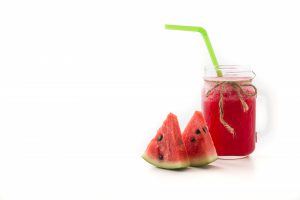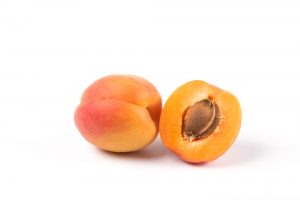
The warmer months are arriving rapidly! This not only implies nice weather, but it’s also a perfect time of year to consume some of the healthiest summer fruits and vegetables.
We’ll go through some of the healthiest summer fruits and veggies to try in today’s blog article. We’ll also discuss why certain crops are best grown in the summer. So, whether you’re seeking a new way to add variety to your diet or simply want to learn more about seasonal food, keep reading for some useful tips!
The sun not only dries out our skin and dehydrates us, but it also causes us to seek out methods to cool down and adjust our diet. Summer, fortunately, is also the period when we may completely appreciate Mother Nature’s offerings. Why not eat a lot of fresh fruits and vegetable juices, which are the finest possible ingredients for a healthy diet and a great method to keep our bodies cool when the weather is hot? They can’t be left unattended in the summer, since they come with limitless health advantages and are also available in the form of cold-pressed juices.
Fresh fruits and vegetables should be a top priority for everyone since they are simply tasty and full of naturally sweet flavor with no added sugar or preservatives. While going for a cold Coca-Cola appears to be a simple and painless option, we frequently fail to grasp how harmful it is to our bodies. Consuming too much added sugar raises blood sugar levels, increasing your risk of diabetes and causing undesirable weight gain.]
Healthiest Vegetables and Fruit
-
Watermelon

Watermelon, sometimes known as a “hydration hero,” is made up of more than 90% water. Its ingredients will keep you cool, hydrated, and full, which is essential throughout the summer. Many elements in watermelon, such as Vitamin A and D, are excellent for your skin and hair, keeping them from becoming dry and flaky. Watermelons can also help with muscular discomfort and are frequently used by athletes to aid recuperation. Because this hydration bomb is so low in calories, it’s a guilt-free snack!
-
Orange

This citrus fruit is high in potassium, which is especially important during the summer when we lose a lot of it via perspiration. Potassium delivery to the body is highly helpful in preventing muscular cramps. Oranges, which contain roughly 80% water, are a fantastic source of hydration on hot summer days. This fruit provides a variety of health advantages, including decreasing cholesterol and managing blood sugar levels and is one of the most widely consumed fruits on the planet.
-
Berries all the way

We’re talking about blueberries and raspberries, which make a fantastic summer combination! They’re high in dietary fiber, which improves digestion, and they’re low in calories and high in nutrients. Berries also contain powerful anti-inflammatory effects, which is your body’s method of fighting illness or damage. They’re the best summer selections, with remarkable antioxidant capabilities and weight-loss benefits!
-
Cucumber

During hot summer days, this delicious and inexpensive vegetable is frequently grabbed for. Cucumbers are great for our skin since they keep it moisturized and aid with skin disorders and sunburns. Its high-water content aids in the cleaning and elimination of pollutants from our bodies. Fresh salads and drinks benefit greatly from their inclusion.
-
Dark Leafy Green Veggies

Leafy greens are recognized for lowering the risk of obesity, heart disease, and high blood pressure due to their multiple health advantages. They reduce skin’s susceptibility to UV radiation and boost the skin’s defenses against the sun’s harmful rays. When the weather becomes hot, skip the cooked vegetables and instead for raw or fresh spinach or kale, which are wonderful in salads and smoothies.
-
Peaches & Apricots

Both are high in beta-carotene, which gives your skin a healthy shine throughout summer. Apricots are well-known for providing natural sun protection, owing to the abundance of Vitamin A in the fruit, which is also necessary for eye health. Vitamin C and potassium are also abundant in peaches and apricots, which aid to prevent muscular cramps. This pleasant and nutritious addition to your diet can enhance your immunity and help you avoid stomach problems.
What should we avoid in the summer?
Now that you know what foods to include in your summer diet, what should we avoid?
It’s tempting to assume that pre-prepared meals and snacks are healthy, but just because they contain vegetables and fruits don’t simply, they are. For example, corn on the cob, the summer’s major attraction, is frequently slathered in butter and salt, resulting in an unneeded fat and calorie bomb. Preparing meals from scratch is the finest method to give our bodies exactly what we desire.
Ribs, chicken, and other meats that are fried, slathered with barbeque sauce, and laden with saturated fat are commonly seen on restaurant menus. Summer also brings outdoor festivals and fairs, which are frequently accompanied by food vendors offering hot dogs, pizza, and burgers. Making sure your meat is grilled and using low-fat seasonings like garlic, chili powder, and mustard instead of a sauce is a healthy option.
Another blunder that many people do is grabbing ice cream treats to chill off when the weather is hot. They’re as dangerous for you as chemically sweetened drinks, and they’re often wrapped in chocolate. Instead of overdoing additional sugars and increasing the risk of diabetes, seek fresh fruit or cold-pressed juices.
Let’s finish up
This essay should help you get through the summer and possibly inspire you to make healthier choices and alter your diet. We are more likely to develop health problems such as dehydration, sunburn, and vitamin and mineral deficiencies as a result of spending more time outside and sweating. Don’t go out of your way to obtain healthy and nutritious meals; eating local, seasonal fruits and vegetables and drinking enough water will keep you hydrated and provide your body with important minerals and vitamins.



